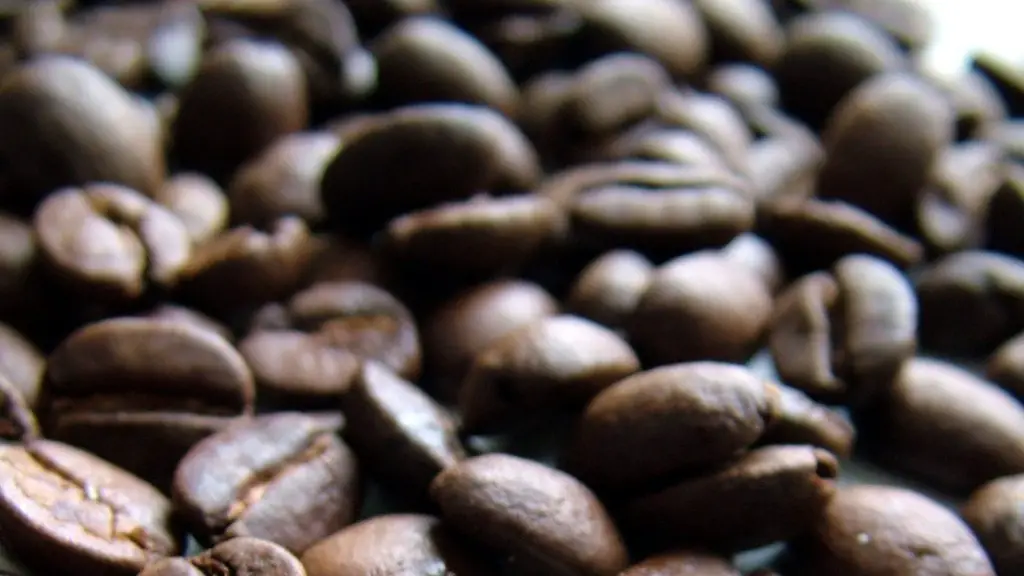Overview
Coffee is one of the most popular beverages in the world, but there are a lot of questions about how much of it you should be drinking in a day. One of the most common questions is, “How much black coffee can I drink a day?” This article discusses the benefits and risks of drinking black coffee and the amount one should consume in a day.
Caffeine Benefits In Black Coffee
The primary active ingredient in black coffee is caffeine, a stimulant that can increase focus, alertness, and energy levels in those who drink it. A cup of regular brewed coffee contains approximately 80-105 mg of caffeine per 8-ounce cup, making it an easy way to get a quick boost during the day. It has been suggested that drinking coffee can also help to reduce the risk of developing certain chronic diseases. For example, a 2013 study published in BioMed Research International found that drinking 3 to 5 cups of coffee per day was associated with a lower risk of bladder cancer.
Coffee drinking has also been linked to a lower risk of cardiovascular disease and certain cancers, which is thought to be due to its antioxidant properties. Antioxidants are compounds that help protect our cells from damage caused by oxidative stress. Additionally, studies have also shown that coffee may help to improve physical performance and reduce fatigue, making it an ideal pre-workout beverage.
Risks of Drinking Too Much Black Coffee
Too much caffeine from coffee can lead to a number of side effects such as irritability, anxiety, and increased heart rate. Consuming more than 400 mg of caffeine per day can also interfere with your sleep, leaving you feeling tired and sluggish the next day. It is also possible to become dependent on caffeine if it is consumed in high doses, making it harder to quit. Additionally, drinking too much coffee can also cause stomach upset and dehydration. These side effects can be minimized by drinking coffee responsibly and in moderation.
How Much Black Coffee Can You Drink In A Day?
The general guideline is to not consume more than 400mg of caffeine per day. This is equivalent to 3-4 cups of coffee per day. It is important to note that the type of coffee you are drinking can make a difference. For example, espresso contains more caffeine than regular brewed coffee, so drinking one or two espressos can quickly increase your caffeine intake for the day.
It is important to keep in mind that different individuals can have different reactions to caffeine. If you are sensitive to caffeine, it is important to pay attention to signs of over-consumption and adjust your intake accordingly.
Calculated Coffee Consumption
Some experts suggest a more individualized approach to calculating how much coffee you should drink in a day. This involves factoring in your age, bodyweight, medical history, and other individual variables. Studies have estimated that consuming up to 200 mg of caffeine per day is considered safe for most people. However, you should consult with your doctor if you are concerned about your caffeine intake.
Brewed Vs Instant Coffee
Instant coffee is made by dehydrating brewed coffee. It is generally weaker than regular brewed coffee and contains less caffeine, so if drinking it for its energizing effects, you would have to consume more of it which would increase the risk of side effects. When it comes to black coffee, regular brewed coffee is the better option. Additionally, if you are looking to cut back on caffeine intake, you could try drinking decaf coffee instead.
Health Benefits Of Drinking Black Coffee
Apart from its energizing effects, black coffee has a number of other health benefits too. Coffee is rich in polyphenols, which are compounds with antioxidant and anti-inflammatory properties. Research has shown that polyphenols are linked to a lower risk of some chronic diseases, such as type 2 diabetes and heart disease. Black coffee also contains magnesium and potassium, which are important minerals for overall health. It is also low in calories, meaning it won’t add to your calorie intake for the day.
Coffee Alternatives
If you are looking for a healthier alternative to black coffee, there are many options available. Tea is a great option as it contains some caffeine, but much less than coffee. Herbal teas such as chamomile or lavender can be consumed to relax and unwind. Green tea is packed with antioxidants, and can provide a gentle boost of energy in the morning. There are many varieties of herbal and fruit-infused teas, so you can find one to suit your taste. Additionally, if you are looking for a caffeine-free beverage, you can try making fruit and vegetable smoothies, or even incorporating them into recipes such as muffins and pancakes.
Coffee Drinking Habits
If you do decide to drink coffee, moderation is key. It is important to be aware of your daily caffeine intake, and to not consume more than 400 mg per day. Additionally, it is best to avoid coffee late in the day as this can interfere with your sleep. You should also consider switching to decaf if your coffee consumption is making you feel overly wired and irritable or if you are becoming dependent on it.
Conclusion
Overall, black coffee can be an excellent choice for a morning or pre-workout beverage due to its energizing effects. While caffeine has some health benefits, it is important to consume it in moderation. Have more than 400 mg of caffeine per day can lead to adverse effects. If you are looking for a healthier alternative to coffee, there are many options such as tea and smoothies. As with any beverage choice, moderation is key.



